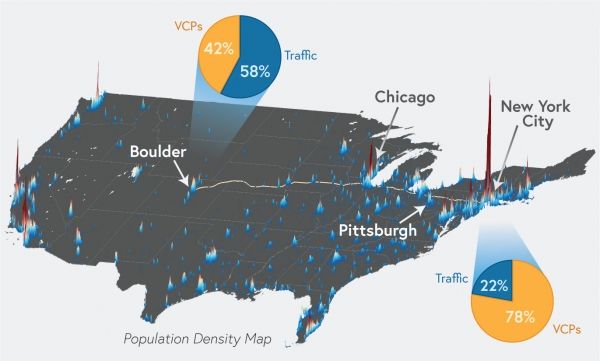Scientists are observing changes in the Earth’s climate in every region and across the whole climate system, according to the latest Intergovernmental Panel on Climate Change (IPCC) Report, released today.
articles
Fragrant Consumer Products a Key Source of Ozone-Forming Pollution in New York City
NOAA scientists now turning their attention to Las Vegas and Los Angeles
Right Whale Use of Southern New England Wind Energy Areas Increasing
Southern New England habitat is important to the North Atlantic right whale. With offshore wind energy development planned in the region, working with stakeholders to minimize potential impacts on right whales and other protected species is crucial.
How Ocean Engineers Are Improving Material Safety In Coastal Structures
Texas A&M research into corrosion-resistant materials could help engineers construct safer structures in the future.
Mountain Lions Moved Less, Downsized Territory During LA’s Pandemic Shutdown
As people sheltered in place at the onset of the COVID-19 pandemic, sightings of wildlife in urban areas helped spawn a meme, “Nature is healing,” that reflected an intuitive belief: Carnivores were stretching their legs, and their ranges, by expanding into long-lost territory.
Fires, Drought Slamming Much Of Western U.S.
Texas A&M climate expert Andrew Dessler says climate change is playing a big role in the Western fires, and Texas itself is getting much hotter.










